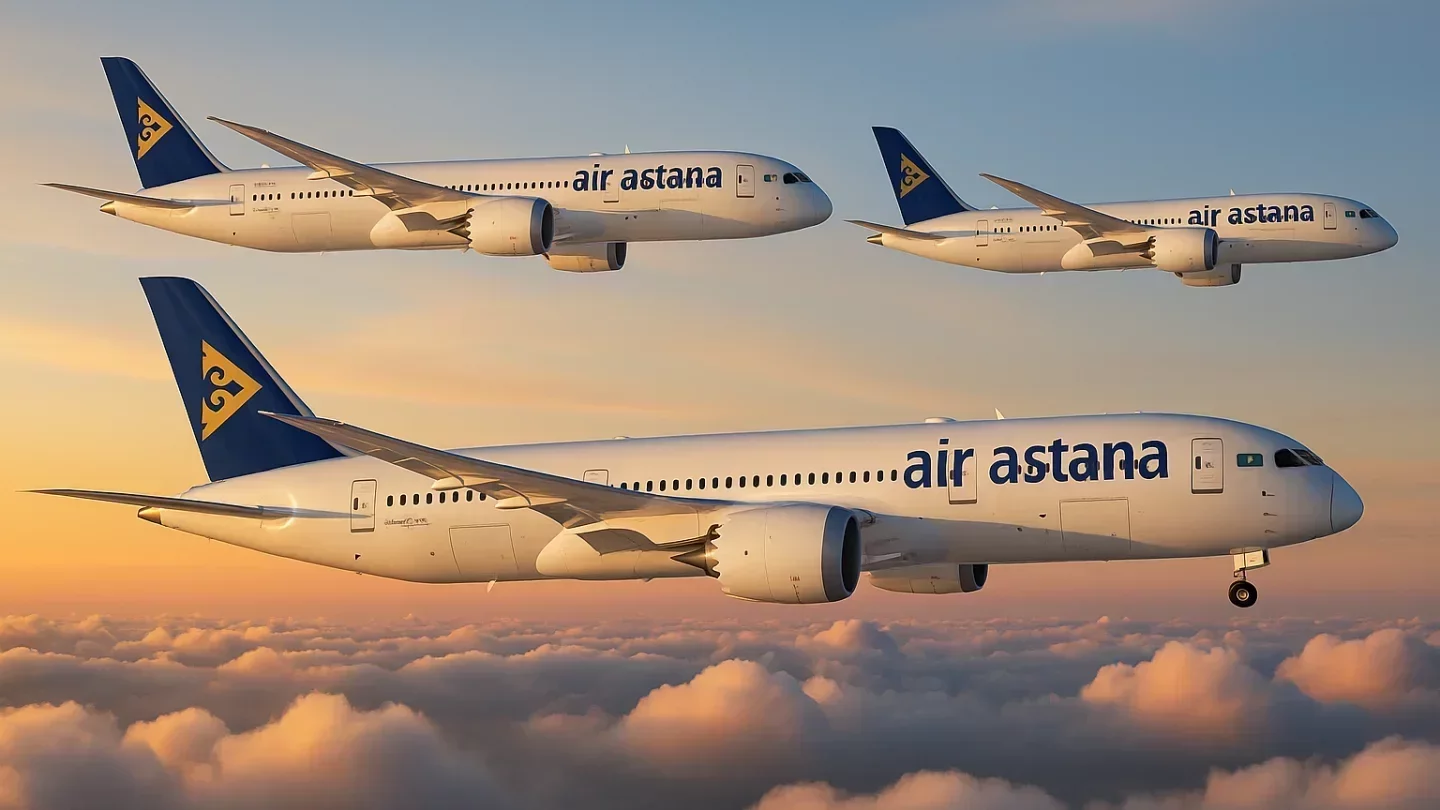Air Astana’s Profit Drops Amid Operational and Currency Challenges
 Photo: Dall-E, illustrative purposes
Photo: Dall-E, illustrative purposes
The reasons include forced aircraft downtime, the weakening of the tenge, and airport closures, Orda.kz reports.
Air Astana ended the first nine months of 2025 with a net profit of $31.2 million, down 39.8% from the same period in 2024, according to the company’s financial statements published on KASE. A year earlier, profit was $51.9 million.
The group's total revenue for the first three quarters grew by 10.1%, reaching almost $1.1 billion. Passenger traffic increased by 10.5%, reaching 7.5 million passengers. Flight load factor remained at 83%,
follows from the document.
The third quarter, typically the most profitable season for airlines, was the hardest hit. Net profit for the period fell by 56.5% to $20.6 million.
Financial results were affected by several factors: unscheduled Pratt & Whitney engine removals, the weakening tenge, and airport closures. According to the company, 19 engines had to be removed early since the beginning of the year, 14 of them during the peak summer season, resulting in the forced downtime of up to 13 aircraft.
The 12% devaluation of the tenge over the year particularly affected FlyArystan, which earns 77% of its revenue from domestic flights. The devaluation led to a loss of $7.1 million. In addition, the closure of seven airports, including the Astana hub, cost the company another $4.2 million.
Despite these challenges, demand for flights remains strong. International passenger traffic rose by 19%, and domestic traffic by 10%. The group launched 22 new routes and expanded its presence in China, India, the Persian Gulf, and Southeast Asia.
Previously, it was reported that Air Astana’s management received compensation of 525.3 million tenge in 2024. The board of directors consists of nine members, with average monthly compensation per top manager exceeding 4.8 million tenge.
As a reminder, Peter Foster will step down as Air Astana’s CEO in March 2026. He will be succeeded by Ibrahim Zhanlyel, who has served as CFO since 2017. The company stated that the leadership change will not affect its strategic plans, including the expansion of its low-cost carrier, FlyArystan.
Original Author: Ruslan Loginov
Latest news
- NeMolchi Reports Case of Domestic Violence in Petropavlovsk
- The Right to Be Forgotten: How Kazakhstan Plans to Regulate Digital Traces
- Kazakhstan: How Civil Servants Are Switching to The Domestic Messenger
- Trump Heard What He Wanted: Can Uzbekistan Really Give The U.S. $135 Billion?
- Toqayev Meets Putin in Moscow
- Air Astana’s Profit Drops Amid Operational and Currency Challenges
- Shukhrat Ibragimov Denies Sale of ERG Assets
- Ancient Saka Weapons Discovered in Qaraganda Region
- Human Rights Groups Urge Kazakhstan’s Parliament to Reject Anti-LGBTQ+ Amendments
- From Honor Huard to Friendship Square: How Moscow Welcomed Toqayev
- Before Meeting Putin: Toqayev Outlines Joint Projects
- President Toqayev to Meet Putin in Moscow on November 12
- Dubai-Based Company Plans Entry into Kazakhstan’s Taxi Market
- Romania Probes Alleged Ammunition Scheme Linked to Kazakhstan
- Kazakhstan: Authorities to Investigate Army Conscription, Medical Exams After Protest by Soldiers’ Mothers
- Syria: U.S. Temporarily Suspends Caesar Act Sanctions
- Qorqyt Ata Special Economic Zone Receives Industrial Status
- Vice Minister Comments on Condition of Yerbayan Mukhtar
- Protesters in Tbilisi Marched from Parliament to Supreme Court — The Caucasian Knot
- Prime Minister Orders Acceleration of Geological Laboratory Construction in Astana

